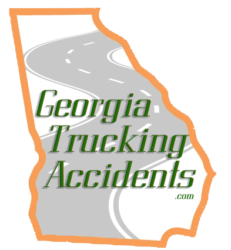Four Ways Hiring an Experienced Georgia Truck Accident Attorney Can Maximize Your Damage Claim
Our lawyers often are asked about the importance of hiring an attorney to provide legal representation when pursuing a personal injury claim. While there are many reasons to have a lawyer on your side, one of the more important reasons is that the attorney can increase the value of your case. Although only a small percentage of civil cases proceed to trial, you gain a distinct advantage by retaining an attorney with the experience and expertise to take the case to trial rather than a law firm that settles every claim. In this blog, we review the ways that a proven Atlanta personal injury lawyer can increase the value of your case.
Insurance companies have more of an incentive to reach a fair settlement with a trial lawyer on the other side.
If an insurance company does not have a reasonable belief that a case might proceed to trial, the insurer has almost complete control over the settlement negotiations. This ability to settle the case by offering the minimum acceptable amount of money means that the insurance carrier is in control of the value of your case at least to a certain degree. The prospect of a jury verdict takes control over the value of your case and shifts that role from the insurance company to twelve unknown decision-makers. During settlement discussions, insurance companies frequently rely on software programs and databases to estimate the value of a claim, but a jury can replace these tools that predictably generate lowball settlement values. When a talented lawyer presents your case to a jury, the attorney will know how to demonstrate the most significant factors the jury will employ to determine the value of your claim.
Effective communication of the severity of your injuries and hardships
Insurance companies do not proceed into litigation blindly. They know that an attorney is skilled at communicating the harms and losses suffered by a plaintiff to the judge or jury. The insurer has more of a motive to settle when your attorney has a track record of success at trial that reveals an understanding of how to help a jury to empathize with the plaintiff’s ordeal.
Trial Attorneys Have Expertise in the Effective Use of Experts
When you do not have an attorney representing you, the task of locating and retaining appropriate experts is difficult. A trial attorney will have the knowledge to identify the precise type of experts you need and to locate those experts. Depending on the facts of your case, you might need an expert in the grieving process, a life care planner, economist to explain future damages, or very specialized medical experts. If your injuries are not easy to see on an objective scan like an X-Ray or MRI, a proven trial lawyer will recognize the questions to ask your doctors to facilitate the jury’s understanding of what you have been through due to the negligence of the defendant. If the insurance carrier believes you attorney can skillfully influence the jury regarding the hardships, pain, emotional distress, and other harm you have suffered, the insurer has a stronger incentive to make a more generous settlement offer. Trial lawyers also recognize that experts can be expensive, but they are not afraid to invest in this valuable litigation resource when the benefits merit the expenditure. Since our personal injury attorneys usually advance such costs when handling a personal injury claim, hiring our trial attorneys provides access to experts that otherwise might not be feasible.
Ability to Refute Insurer Efforts to Shift the Blame
In many personal injury lawsuits, the insurance company will explore the option of contending the plaintiff should bear some responsibility or all of the blame for his own injuries. Insurers will have more incentive to settle if they know that your attorney will exhibit an expert presentation of the evidence, use of experts, and skilled advocacy to refuse efforts to shift financial responsibility for an accident to the plaintiff.


